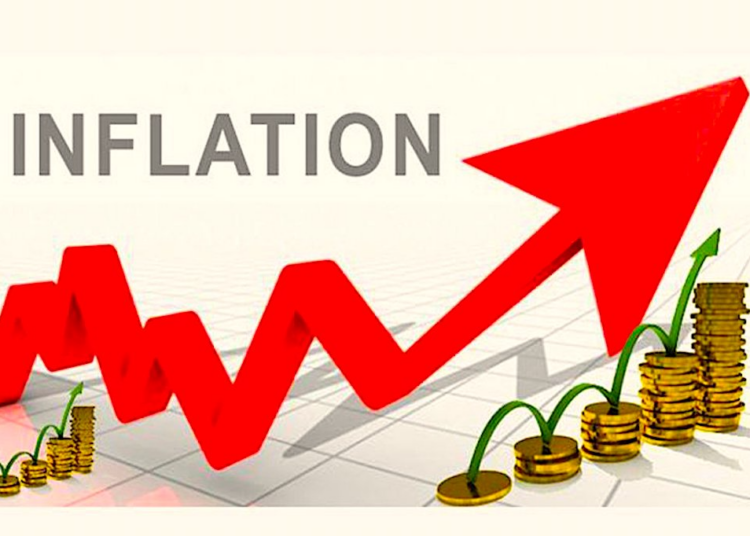Nigeria’s headline inflation maintained its upward trajectory in a worrisome dimension as the inflation rate hit 28.92 per cent in December 2023 relative to the November 2023 headline inflation rate which was 28.20 per cent, largely driven by the soaring prices of basic food items and impact of cost of energy on transportation.
This is as the director general of Lagos Chamber of Commerce & Industry (LCCI), Dr. Chinyere Almona said: “Following 12th consecutive months of acceleration, the battle against inflation must be intensified by the CBN.
The Chamber expressed concern about the continued uptick in inflation and particularly noted that it offers investment disincentives to businesses, squeezes consumers’ income and spending, and constraints manufacturing productivity in the country.
The December 2023 headline inflation rate showed an increase of 0.72 percent points when compared to the November 2023 headline inflation rate. Both urban and rural inflation were on the rise all through the year.
Food inflation rate in December was 33.93 percent on a year-on-year basis, a 10.18 per cent points higher compared to the rate recorded in December 2022 (23.75 per cent). According to NBS, the rise in Food inflation on a year-on-year basis was caused by increases in prices of bread and cereals, oil and fat, yam and meat. The food inflation rate in December 2023 was 2.72 per cent, this was 0.30 per cent higher compared to the rate recorded in November 2023 (2.42 per cent).
The average annual rate of Food inflation for the 12 months ending December 2023 over the previous twelve-month average was 27.96 percent, which was a 7.02 per cent points increase from the average annual rate of change recorded in December 2022 (20.94 per cent).
On a year-on-year basis, the headline inflation rate was 7.58 percent points higher compared to the rate recorded in December 2022, which was 21.34 percent, the statistics bureau said.
The latest data shows that the headline inflation rate (year-on-year basis) increased in December 2023 when compared to the same month in the preceding year (December 2022).
Commenting further, the LCCI DG said, “We anticipate economic agents, including households and businesses, to continue to deploy strategies that will mitigate inflationary pressures.”
According to Almona, CBN is responsible for formulating and implementing monetary policies that foster currency stability.
This involves a delicate balance between managing inflation, ensuring a competitive exchange rate, and promoting economic growth.
Therefore, the CBN needs to adopt a well-calibrated policy mix that addresses the unique challenges facing the Nigerian economy.
“By promoting economic diversification, implementing effective interest rate policies, managing the exchange rate judiciously, and embracing inflation targeting, the CBN can contribute significantly to ensuring the stability of the Naira and fostering a robust and resilient economy.
“Further, we implore the government to address the challenges inhibiting domestic production and ease the bottlenecks to the distribution of goods within the country. Finally, we urge the government to continue to address the problems of insecurity and other factors affecting agricultural productivity in the country to improve food supply,” he pointed out.
Also, director, Centre for the Promotion of Private Enterprise (CPPE), Dr Muda Yusuf said, the surging inflation has had a devastating effect on citizens welfare and the health of small businesses.
He stated that, the inflationary pressures have intensified and some of the factors are global, others are domestic, which include the depreciating exchange rate, spike in energy prices, rising transportation costs, logistics challenges, forex market illiquidity, hike in diesel cost, insecurity in many farming communities and structural bottlenecks impeding productivity.
He noted that, tackling inflation requires urgent government intervention to address the challenges bedevilling the supply side of the economy, saying, it is imperative to urgently fix production and productivity constraints, stabilise the exchange rate by ensuring liquidity in the forex market, tackle insecurity, accelerate efforts to ensure domestic refining of petroleum products and fast-tracking tax and fiscal reforms to curb escalating deficit spending.
LCCI Seeks Detailed Action Plan On Inflation, Electricity, Others
Yusuf added that “now that we are seeing the prospect of improved domestic refining of petroleum products, we are expecting that maybe that will bring down energy prices. And if energy prices come down, that may positively impact the inflation situation.”
He explained that energy cost is one of the biggest issues driving inflation, saying that “we are also hoping that the efforts of the CBN to stabilise the naira will also yield good fruits at least between this quarter and the next quarter. With this we are likely to see a much better situation with inflation.
“Then we expect more efforts on insecurity so that agric production can improve. Farmers can go back to their farm and the food inflation, which is now almost at 34 per cent, can begin to drop. So those are the things we are hoping the government will respond to, to bring down inflation.”
On its part, CardinalStone stated that, “Inflation ended 2023 at a 27-year high of 28.9 per cent. Cumulatively, inflation averaged 24.5 per cent in 2023, reflecting currency pressures, elevated PMS prices, rising farm input costs, and persisting security challenges in the food-producing states.”
It added that, “Inflation is projected to peak in the first quarter of 2024, settling at c.29.5 per cent by March. From the second quarter of the year, we expect the base effect and the dissipating impact of the large gasoline price increases to propel a disinflation, helping 2024 inflation to average 22.0 per cent from 24.5 per cent expected in 2023.
“In addition, the sustained hawkish disposition of the Central Bank of Nigeria (CBN) and reduced deficit financing to the government due to expected gains from subsidy removal could lower the broad money supply, which is positive for inflation. Despite the expected moderation, our projected inflation is well above the long-run average of 14.0 per cent, partly reflecting currency pressures.”





